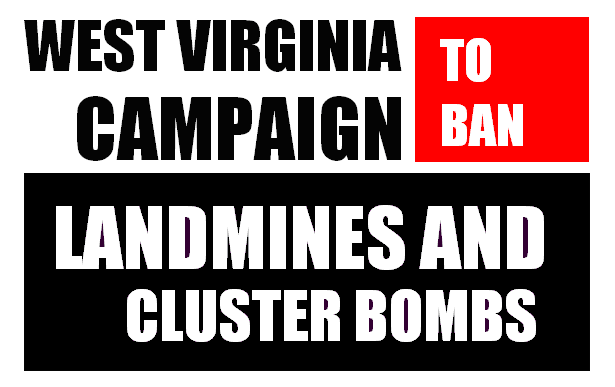On Mine Awareness Day 2019, PSALM (PROUD STUDENTS AGAINST LANDMINES AND CLUSTER BOMBS) joined the International Campaign to Ban Landmines in celebrating twenty years of Mine Ban Treaty success and the role of civil society and mine action partners in Taking Action for a Safer World.
The Treaty remains one of the most successful disarmament instruments ever. With 80% of the world’s countries on board, and many other countries in de facto compliance, the Treaty has nearly eliminated the production and use of antipersonnel landmines by states, while contributing to saving people’s lives and limbs every day.
Global Action
This year, in preparation for the Fourth Review Conference on a Mine Free-World, we are taking action and calling on all States Not Party to join the Treaty without delay and help end the suffering caused by landmines, within a few short years.
During the past month over 40 ICBL campaigns in some 32 countries around the world, including PSALM, have sent letters calling for five targeted countries: Cuba, Lebanon, Singapore, Georgia and Marshall Islands to accede to the Mine Ban Treaty. These countries have already shown support for and worked on behalf of Treaty aims and should take immediate steps to accede to the Treaty and to announce this to the global mine ban community at the conference taking place November 25-29 in Oslo, Norway.
- Cuba is the last country in Latin America and the Caribbean still remaining outside of the Mine Ban Treaty, it has expressed support for the humanitarian aim of the Treaty, and has participated in a number of Treaty meetings. In addition Cuba is a State Party to the Convention on Cluster Munitions, which is guided by the same humanitarian principles as the Mine Ban Treaty. Cuba’s accession to the Treaty would be of great significance – bringing all of Latin America and the Caribbean onboard of the Treaty.
- Georgia is one of only 32 states that still remain outside of the Treaty. Contaminated by landmines, Georgia has taken a number of important steps in the spirit of the Treaty, including clearing its land, providing assistance to victims, voting in favor of the annual UNGA resolution calling for universalization of the Treaty, as well as attending some treaty meetings. Since landmines still continue to take a toll on Georgia’s land and people.
- Lebanon is among the 32 states that still remain outside of the Treaty. Heavily contaminated by landmines, Lebanon has taken a number of important steps in the spirit of the Treaty, including clearing contaminated land, providing assistance to victims, attending treaty meetings and speaking in favor of accession. In addition Lebanon is a State Party to the Convention on Cluster Munitions, which is guided by the same humanitarian principles as the Mine Ban Treaty. Since landmines still continue to take a heavy toll on Lebanon’s land and people.
- Singapore is also among the small number of states that still remain outside of the Mine Ban Treaty. Singapore has voted in favor of the annual UNGA resolution calling for the universalization of the Treaty and has participated in a number of Treaty meetings. In addition, we understand that Singapore has ceased to produce antipersonnel mines and has a moratorium on their export. As a modern state and nation, actively supporting disarmament initiatives, Singapore’s accession would greatly contribute to regional peace and human security.
- The Republic of the Marshall Islands signed the Mine Ban Treaty on 4 December 1997 when it first opened for signature. As of today the Marshall Islands is the last and only remaining signatory that has not ratified the Treaty. The Marshall Islands does not stockpile antipersonnel landmines and has repeatedly voted in favor of the annual UNGA resolution calling for universalization of the Treaty. Marshall Islands should take the final step to join the Treaty and its 164 States Parties.
In addition to these efforts to bring countries onboard the Mine Ban Treaty in 2019, ICBL and PSALM looks forward to working with states and mine ban partners to amplify the following messages and ensure a strong plan of action for the Fourth Review Conference for a Mine-Free World:
- We sound an alarm and reiterate the urgency to address continued casualties from antipersonnel mines;
- We stress that use of antipersonnel mines, including improvised mines, is absolutely unacceptable by anyone, anywhere, constitutes an international humanitarian law crime, and should be strongly condemned and stopped;
- We continue to focus on the aspirational goal of a mine-free 2025;
- We emphasize the crucial role of state ownership in Finishing the Job
Mine Ban Treaty 20th Anniversary of Entry into Force
March 1 2019 marked 20 years since the life saving Mine Ban Treaty entered into force following much hard work and the cooperative efforts of civil society, the ICRC, States and the United Nations.
We celebrate the progress made, lives saved and rights ensured for landmine survivors since the treaty became international law. We also welcome renewed commitment by States and the mine ban community at large, towards a Mine Free 2025.
To mark the occasion, ICBL and network partners such as PSALM/WVCBL participated in Mine Ban Treaty 20th anniversary events undertaken in Geneva and in affected countries worldwide.
On 1 March, ICBL joined Treaty champions including States, #UNHumanRights, UNHCR, the UN Refugee Agency, and UNICEF in an event highlighting the impact of the lifesaving treaty and what remains to Finish the Job for a Mine Free World.
UN High Commissionner for Human Rights Michelle Bachelet addressed the meeting emphasizing links between the Mine Ban Treaty and the Convention on the Rights of Persons with Disabilities and the need to ensure all landmine survivors are able to enjoy their human rights. “We still have much to do to ensure the rights of survivors on 20th anniversary of the Mine Ban Treaty”.
ICBL Ambassador Margaret Arach Orech also spoke to the gathering hosted by the Norwegian Mine Ban Presidency, via a video address highlighting 20 Years of Mine Ban Treaty success and the importance of ensuring survivors’ rights now and into the future. The gathering also heard from a Colombian mine survivor who stressed the positive impact of the treaty for the country’s more than 11,000 landmine survivors.
Speaking at the event, ICBL Director Hector Guerra noted “The participation of landmine survivors and members of affected communities has always been essential to the mine ban movement, from the onset in the 1990s. It still is today, and it is a central component of our advocacy work”.
“We trust that the Review Conference to be held this year in Oslo will be a success, helping to guide the efforts of this community from now until 2025”, he added.
At the 2014 Review Conference in Maputo, Mozambique, States committed to achieving a mine free world, to the fullest extent possible, by 2025.
Since its launch in 1992, the ICBL has been the voice of civil society in the diplomatic arena, pushing for changes in government policies and practices on addressing the suffering caused by landmines. The campaign includes national and international NGOs, as well as dedicated individuals, across many disciplines including human rights, development, refugee issues, and medical and humanitarian relief.

